Few things calm nerves and lift spirits like the unconditional love, attention and security provided by a good dog.
But while you can probably bond with any dog breed (or combination thereof), some are dogs are better suited for reducing anxiety than others. We’ll try to help below, as we share some of the breeds that can be beneficial for your mental health and help ease any anxiety issues you face.
Table of Contents
Best Dogs for Anxiety: Key Takeaways
- Dogs are often very helpful for reducing the anxiety levels of their owners. There are a variety of reasons they’re so well-suited to provide this service, including the unconditional love and physical contact they provide.
- While just about any dog can help reduce their owner’s anxiety, the best four-footers for the job often share a number of traits. This includes things like a calm, friendly demeanor, as well as an affectionate nature.
- Any dog breed can help to sooth anxiety, but some breeds are typically better suited for the task than others. This includes breeds like Labrador retrievers, poodles, and Great Danes, among others.
Small Dogs Vs. Large Dogs For Anxiety: Which Are Best?
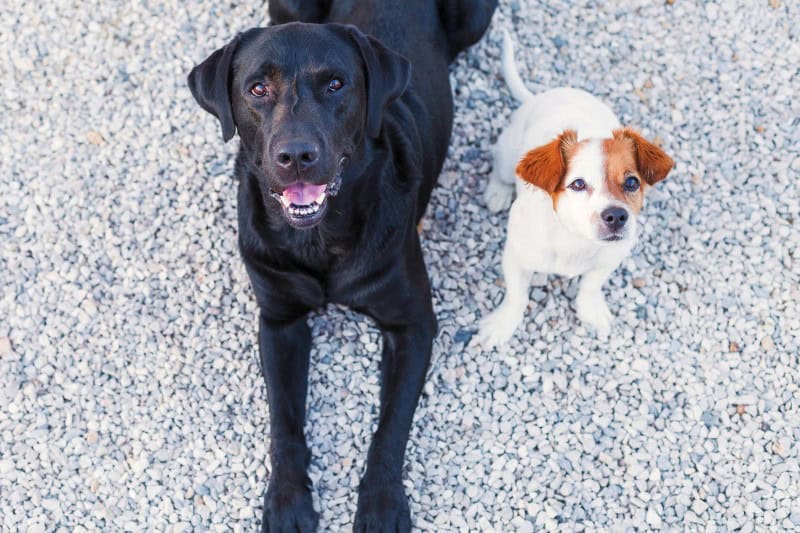
One of the first things you’ll want to consider when trying to pick out a canine to calm you down is size. Some people may find that a big dog helps reduce their anxiety level, while others will find a tiny pooch fits the bill better.
Obviously, neither option is inherently better than the other; you must simply pick the best-sized pup for your wants, needs, and lifestyle.
However, you’ll want to keep a few things in mind when making your choice:
- If you want to take your dog with you everywhere, a small breed may be the better option. Small dogs are easy to carry around in a bag, they can sit on your lap comfortably, and they’re typically welcomed in more places than large dogs are. Extremely well-behaved big dogs may be suitable for constant companionship, but you’ll likely find doing so to be more difficult.
- If you are a touchy-feely type of guy or gal, you may appreciate the whole-body snuggling opportunities big dogs present. Snuggling up with a big pooch on the couch can be very soothing, and many large dogs will even “spoon” with you during naps.
- If your anxiety stems from concerns about your personal safety, a big dog is probably the best option for you. Few people with bad intentions will pick on a person with a dog – they’ll usually look for an easier target who is not accompanied by a canine. Pet parents typically find that many “scary looking dogs” are in fact big softies, who do a great job at making their people feel safe without being much of an actual threat at all.
- If financial challenges are exacerbating your anxiety, you should probably opt for a small dog as they’re generally cheaper to support. Bigger dogs need more food, bigger toys, larger crates, and stronger leashes, all of which will increase the costs of ownership. You’ll even find that veterinary care is more expensive for large dogs than small dogs in most cases.
- If you’ve never had a dog before, or you aren’t already comfortable with canines, you should probably start with a small dog. Smaller dogs are simply easier to care for and control than their larger counterparts. They’re also easier to rehome if you discover that you are not cut out to be a pet owner.
- Are peace and quiet important for controlling your anxiety or preventing an anxiety attack? If so, you may find that a large dog is the better option. There are certainly myriad exceptions, but, as a general rule, smaller dogs tend to be a little more excitable and vocal than big dogs. Make sure to check out our list of the quietest dog breeds if silence is essential for you!
14 Best Dog Breeds For Anxiety
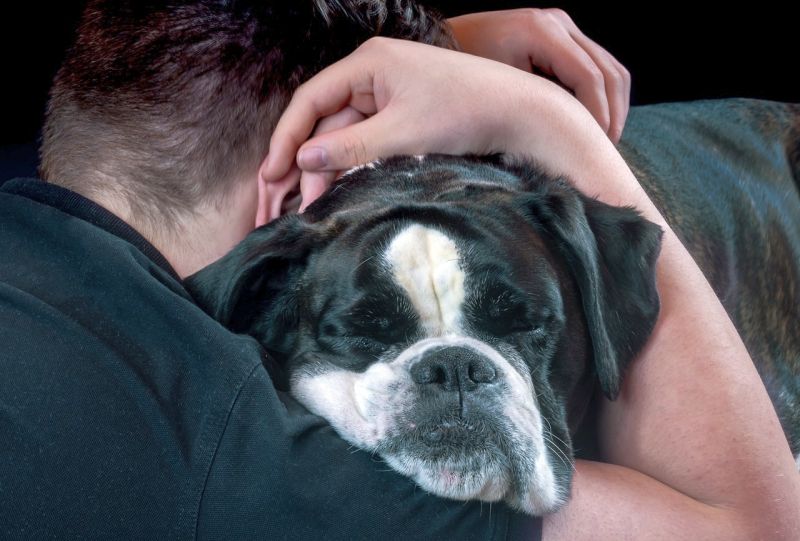
While every dog is an individual and there are no guarantees, the following breeds are generally considered some of the best dogs for helping to soothe anxiety and improve mental health. To make things easier, we’ve broken them into two groups: small dogs for anxiety and big dogs for anxiety.
But let’s kick things off with the whittle waggers.
Best Small Dogs For Anxiety: Tiny & Terrific!
These pint-sized pooches are great companion animals for comforting people with anxiety.
Just remember to consider all of their requirements in mind — including everything from the level of mental stimulation they need to the the health conditions they often experience — before making your choice.
1. Pugs

Pugs aren’t everyone’s cup of tea, but those who give them a chance will be rewarded by ridiculous amounts of love and entertainment.
The Canadian Kennel Club describes their expression as “human-like,” which may be part of the reason it is so easy to bond with these little lovers (but they’re big hearts certainly don’t hurt).
2. Yorkshire Terriers

Yorkshire terriers (often simply called Yorkies) tend to bond very strongly with their owners and shadow them whenever possible. In fact, they’re at their happiest when they are lavishing love and affection upon their person.
Although Yorkies are on the small side, they have a rough-and-tumble personality that the AKC describes as “tomboyish.”
3. Pomeranian
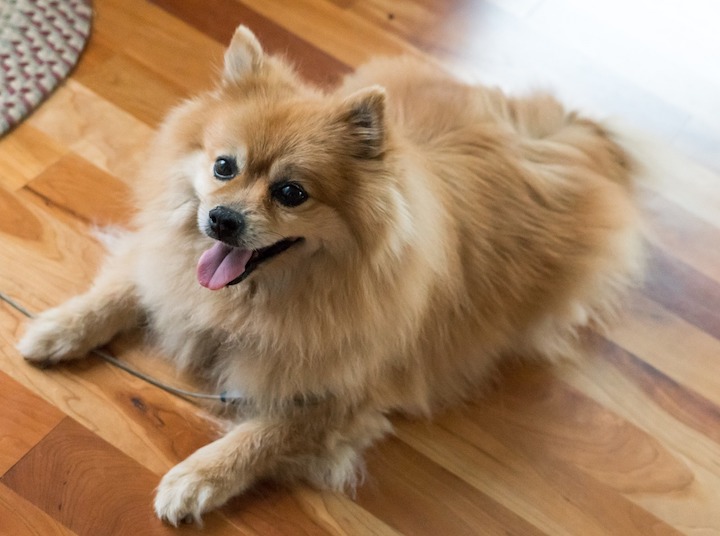
Pomeranians are great for people who want a dog that prefers to stay by your side 24-7 while lavishing you with love (and a bit of entertainment). Most Pomeranians will gladly accompany you everywhere you go, although you may want to invest in a carrying bag of some type, as these little guys and gals have tiny legs.
Just make sure you socialize your Pomeranian early and often, as they’re sometimes distrusting of strangers and kids can make them a bit nervous.
They are pretty sharp pups though, and they don’t exhibit some of the training difficulties that some other tiny dogs do.
4. Bichon Frise
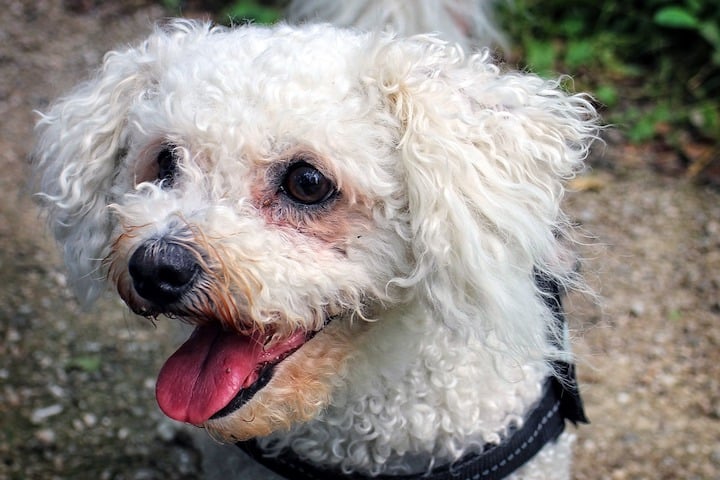
If you need a few more smiles in your life, a bichon frise may be just what the doctor ordered.
These little happy-go-lucky cuties are among the friendliest breeds in the world, and they usually greet everyone they encounter with a big set of puppy eyes and a wagging tail. However, they’d always rather be beside their pup parent than anywhere else.
Bichon frises are also smart and easy to train, so they’re unlikely to cause you many headaches. They do require rather elaborate grooming, so you’ll need to build some room for regular trips to the groomer in your budget. They do not, however, shed very much. So, allergy sufferers may want to give them extra consideration.
5. Pembroke Welsh Corgi
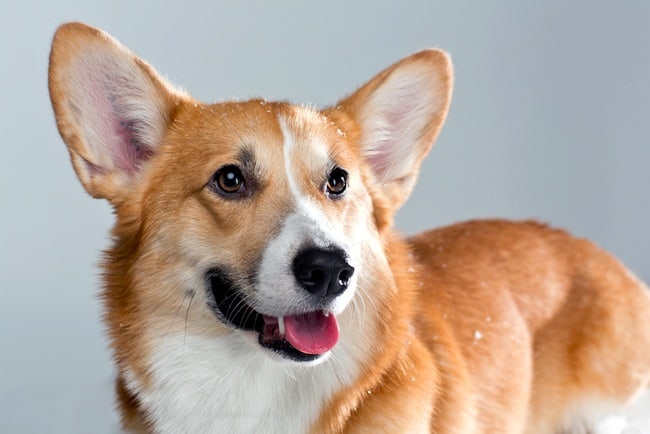
The Pembroke Welsh corgi is one of the most affectionate and devoted pets a dog lover could want, and they’re commonly used in therapy contexts.
Pembroke Welsh corgis (and, to a lesser extent, their larger cousins the Cardigan corgis) are incredibly friendly with most people (and kids), although they can be a bit prickly with other dogs.
Corgis are pretty smart and easy to train, but they are pretty energetic little pups, so they aren’t great for homebodies who live in small apartments.
Weighing up to about 30 pounds, we’d consider them small dogs, but they’re certainly not small enough to carry around in a bag with you or sit in your lap the way Pomeranians or Yorkies can.
6. Cavalier King Charles Spaniel

Cavalier King Charles spaniels were bred to be lap dogs, and they love nothing more than relaxing in mom or dad’s lap all day. In fact, they may be the very best choice for owners who just want calm, consistent love from a pet.
But this doesn’t mean cavalier King Charles spaniels are prissy – these spaniels still have all of the pluck and energy that characterizes their bird-flushing ancestors.
These pups make great pets for first-time dog owners, and most have never met another person or dog they didn’t like. They’re also smart and easy to train, and they don’t even require much grooming to keep their luxurious coats looking great.
7. Havanese

If you want a dog who is gentle and loving, yet full of energy and gumption, you’d be wise to consider the Havanese.
Sometimes called “Velcro dogs,” thanks to their desire to stay at their owner’s side as much as possible, these dogs are great for owners who suffer from anxiety and will benefit from the endless buckets of love they have for their people.
But, you’ll have to be OK with your dog loving everyone else too, as the Havanese is a bit of a social butterfly. However, this makes them great companions or therapy dogs for owners who want constant support, as they’ll usually behave quite well while traveling by your side.
Best Large Dogs For Anxiety: Big & Mighty!
These popular and large emotional support dog breeds will excel at comforting you in times of stress.
1. Standard Poodles
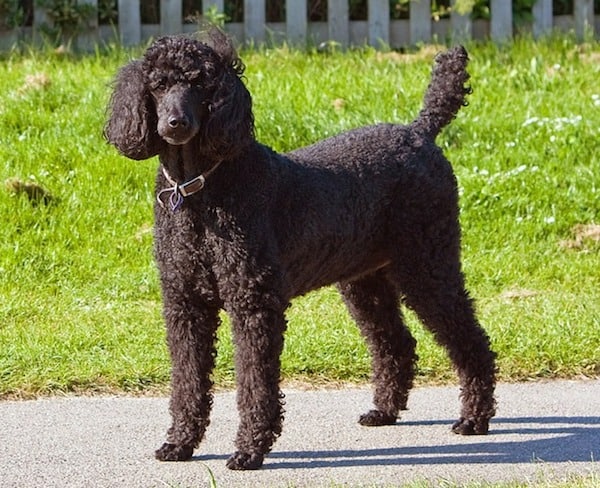
Standard poodles make great companions for those in need of stress reduction, and their tidy coats make them a breed welcome in homes with allergy sufferers. Standard poodles are very smart, friendly and have optimistic demeanors, which can’t help but rub off on their owners.
2. Labrador Retrievers

Labrador retrievers are well-suited for so many different purposes that it should come as no surprise that they also excel in therapy contexts too.
Few dogs are as loving as the Labrador retriever, and even fewer are as gentle; they are typically wonderful with children, the elderly, handicapped individuals, and even strangers. This makes them a very popular breed for service work.
3. Golden Retrievers
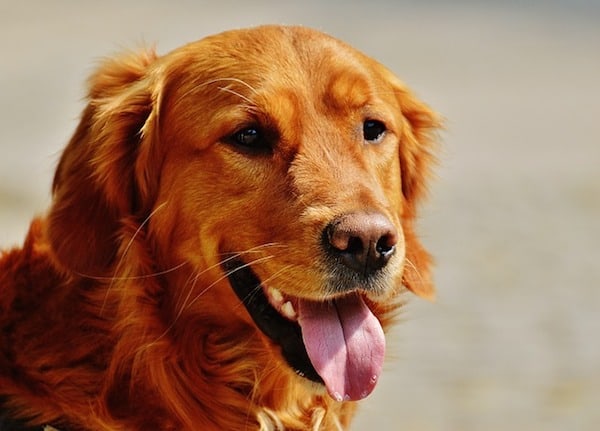
Golden retrievers are quite similar to Labs in many respects, and they are equally well-suited for eliciting smiles and soothing frazzled nerves. The UKC characterizes them as calm, compliant and compatible – traits which are utterly obvious to anyone who’s ever met one.
Like many of the dogs on this list, they can often pass the Canine Good Citizen Test with a little training, proving just how great these four-legged furry pals can be.
4. Great Pyrenees
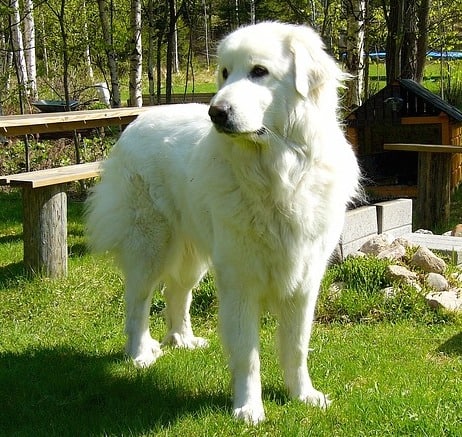
Described as “calm, patient and smart” by the AKC, Great Pyrenees are affectionate puppers who are wonderful for reducing anxiety.
Just understand that these are big dogs, so you must have enough space for them. Females often weigh about 85 pounds, while males tip the scales at 100 pounds or more.
5. Great Danes
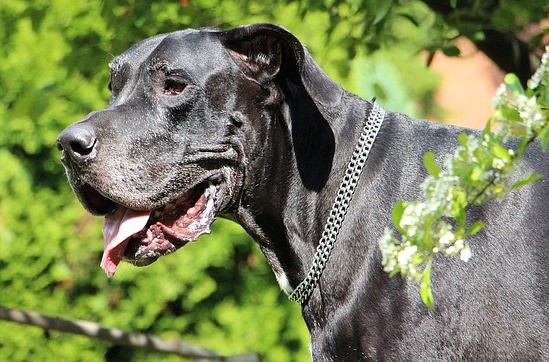
Great Danes are confident, calm dogs that are great for anxious owners. But you better be sure you are ready to welcome such a big critter to your family – large males may stand nearly 3 feet high at the shoulder.
But for those undaunted by their large size, Danes provide a type of affection and companionship few other breeds can provide.
6. Greyhound

Greyhounds are very sensitive dogs, who are very good at picking up on their owner’s emotions. They also love snuggling on the couch with their pet parents, so they are a great choice for people who want a lot of physical contact with their dog.
Note that retired greyhounds are often put up for adoption, but these dogs often come with emotional scars. So, while these dogs can make great pets for some owners, people with high anxiety levels are often better served by adopting a young greyhound puppy instead.
7. American Pit Bull Terrier
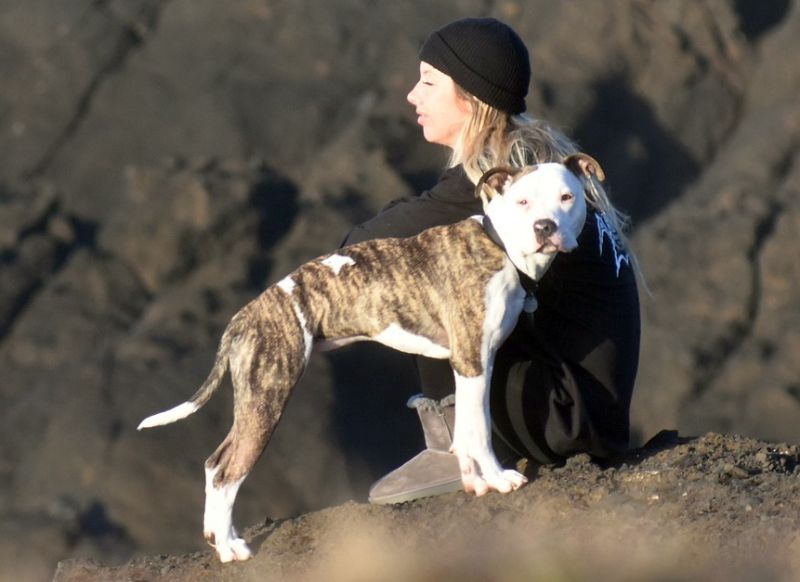
I know this recommendation may shock those who’re unfamiliar with pitties, but those who have experience with the breed won’t find this the least bit surprising.
After all, pibbles (as they’re often called by their people), are often ridiculously loving and affectionate dogs, who’s favorite pastime is doling out cuddles and kisses. They’re also confident, outgoing, and loyal — all things that make them great for people in need of an ESA.
However, they do present some challenges (as all breeds do). Many pit bulls are power-chewing puppers, who will need nearly indestructible chew toys, and they also need plenty of stimulation to prevent boredom (which may cause them to use their chompers on your stuff).
Pibbles also have pretty high energy levels, so they aren’t the ideal choice for apartment life, unless you plan of making park trips a daily endeavor.
Watch Spot Soothe: How Dogs Reduce Anxiety in Humans
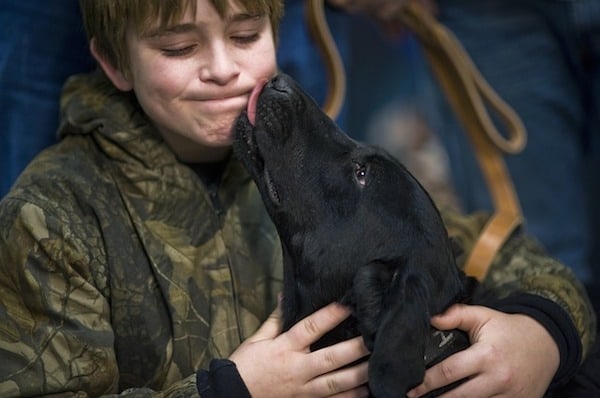
Now that you know some of the best breeds for reducing anxiety, it is important to understand why dogs have this ability in the first place.
In a word: hormones.
According to a 2012 study, published in Frontiers of Psychology, human-animal interactions are thought to activate the oxytocin system. Oxytocin helps regulate the social bonding process. It is the reason that a baby’s gaze fills a new mother with joy; and, it turns out, it’s also the reason a loving look from your pup gives you warm and fuzzy feelings.
And this isn’t a one-sided interaction: As determined by a different 2012 study, your puppy’s oxytocin levels also rise when you are affectionate with him. So, while your puppy is making you feel good, you are making him feel good too.
But hormones aren’t the only reason that dogs help reduce anxiety. They accomplish the task in other ways too:
- Physical Contact Feels Good. Simple physical contact helps to ease anxiety (and this isn’t limited to humans – other animals fight stress with touch too). Some breeds are particularly effective in this regard, as they tend to remain in nearly constant physical contact with their owners.
- Unconditional Adoration. Unlike even your closest friends and family, dogs lack the capacity or willingness to judge. Your dog will remain firmly in your corner while you confess your darkest secrets or behave in ways you’d never do in front of other humans. You are completely free to be you when in the company of your pup.
- Sense of Security. Some dogs make their owners feel safer (thereby reducing their owner’s anxiety levels), either by virtue of the dog’s intimidating appearance or propensity to bark at strangers and strange noises.
However, despite the mountain of supporting evidence, dogs are not a magic bullet in the fight against stress and anxiety.
While many studies have found that dogs are capable of providing significant emotional benefits for their humans, some studies have found that conventional stress-and pain-management techniques probably perform equally well.
But come on, do you want to meditate and chant soothing words while thinking about your happy place, or do you want to scratch a dog’s belly while he licks your face?
That’s what I thought.
What Personality Traits To Look For In Anxiety-Lowering Dogs
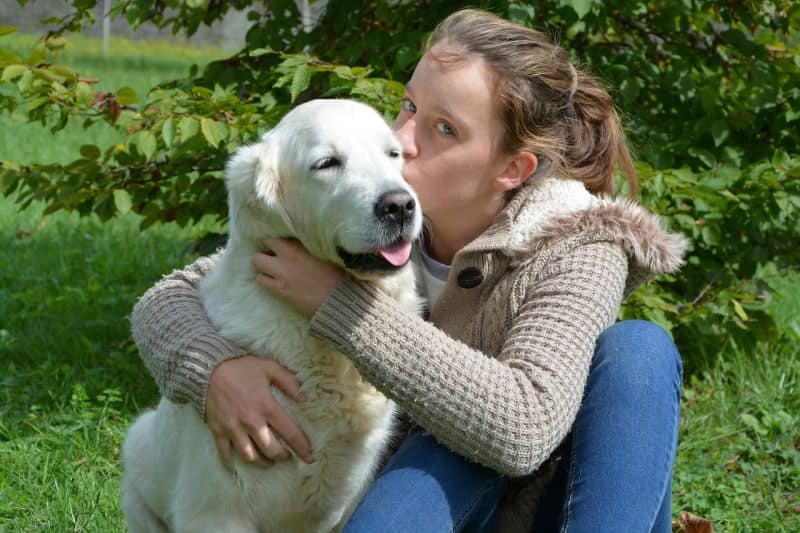
Obviously, some dogs are more effective at reducing your anxiety than others are. An anxious dog (especially one who suffers from separation anxiety) is not likely to make you feel much better yourself. This is true at both the breed level and the individual level.
Dogs that constantly bark and yip, run full speed through your house or have hyper-needy personalities may lead to more anxiety than they allay. These kinds of traits won’t help calm your frayed nerves or stave off an anxiety attack — they may even have the opposite effect.
Accordingly, it is important to familiarize yourself with some of the personality traits associated with good anxiety-lowering dogs to help you select a good one.
Generally speaking, the most soothing dog breeds and the best dogs for anxiety are canines who are:
- Friendly
- Outgoing
- Calm
- Affectionate
- Confident
- Loving
- Loyal
Note that intelligence is not listed above; in fact, highly intelligent dogs can cause headaches for some owners. After all, it doesn’t take a genius to follow you around and shower you in unconditional love.
Of course displaying these qualities alone isn’t enough – most official anxiety therapy dogs need to undergo some basic training programs, such as the Canine Good Citizen (CGC) Test, and demonstrate good behavior skills.
There are a lot of things to consider when picking up a pooch to help treat your anxiety, including all of the things mentioned above.
However, there’s one more thing you should think about when picking a four-footer: the amount of care and maintenance the dog will require.
Simply put, some dogs are “high maintenance,” and require a ton of care. These pooches can be helpful for some owners with anxiety, but they will make a poor fit for most.
Generally speaking, owners struggling with anxiety will be best served by selecting a low-maintenance dog breed, with moderate exercise requirements and minimal grooming needs.
A Therapy Dog in Action: Seeing What Support Dogs Do
Curious what life is like for an anxiety-fighting pooch? Check out this video following therapy dog Fraiser on one of his average days.
Check it out: More facts about therapy dogs and animal-assisted therapy!
Where to Find a Good Dog For Anxiety
You can find a good dog to help curb your anxiety through all the typical avenues. Rescues often have a wide selection of mixed-breed dogs, while breeders and retailers typically offer purebred varieties.
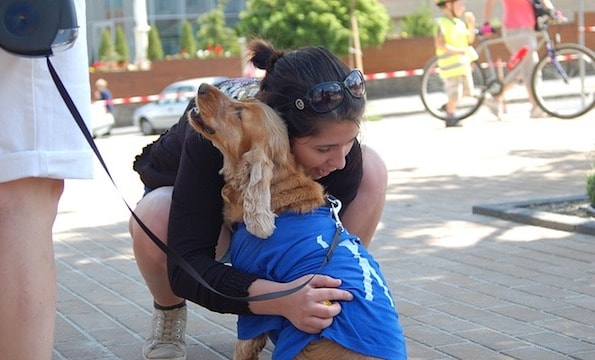
Give some thought to adopting an older dog if this is your first pet. Young puppies require much more time, effort, and patience than adult dogs do, which may move your stress level in the wrong direction.
Adult dogs available at rescues are often housebroken and many have received at least a minimal amount of obedience training. Senior dogs aren’t as popular as puppies, but they still have boundless amounts of love to give and are often more laid back than their younger counterparts.
In all cases, it is wise to do your homework on the charity or breeder with whom you intend to do business.
Emotional Support Dogs vs The Stress-Reducing Benefits of Canines
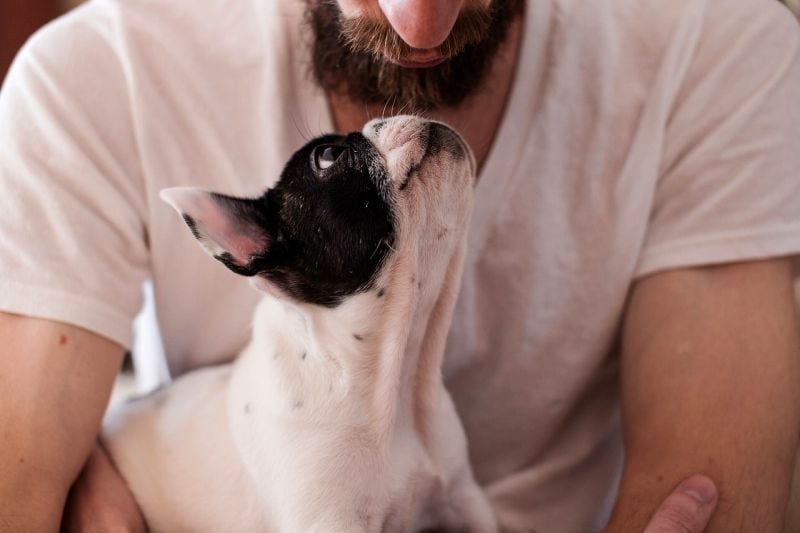
Just about anyone can benefit from adding a new dog to the family. Pets (well, properly trained pets anyway) offer a wealth of health benefits, including, most notably, the ability to reduce your stress level.
But there’s a big difference in a standard-issue pet and a dog that is capable of being a bona fide emotional support dog. So, it is wise to be clear about your goals when trying to pick a pup. And although many rescue dogs can be trained to perform therapy work, top-tier support dogs don’t exactly grow on trees.
Minimally, you’ll need to get a dog that demonstrates phenomenal obedience and the ability to pass the Canine Good Citizenship Test mentioned above. And, of course, you’ll need to select a dog with whom you connect – if you two don’t get along like old pals, the relationship may be doomed from the start.
The Difference Between Service, Support and Therapy Dogs
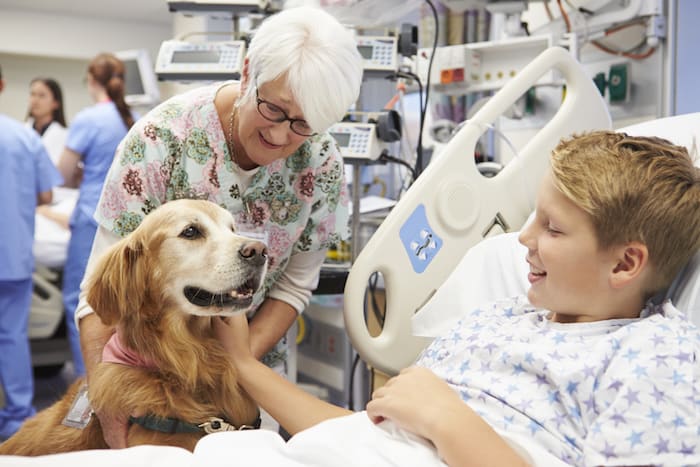
Alright, so you’ve decided that a dog may be just what you need to help cope with your anxiety. What do you do now?
The answer depends, in part, on your goals.
The laws, regulations and working practices involving assistance animals is a tangled web that can be difficult to decipher. But, terminology matters, and there’s a difference between a therapy dog, an emotional support dog, and a service animal.
You need to understand the differences between these types of companions, so that you can select the best one for your needs.
Service Dogs

According to the U.S. Department of Justice, Civil Rights Division, a service animal is “a dog that has been individually trained to do work or perform tasks for an individual with a disability.”
A guide dog who leads his blind owner around is the classic example of a service dog, although other service dogs are trained to monitor their owner’s blood sugar levels, alert their deaf owner to danger, or perform similar tasks.
And yes – you can get a service dog for anxiety, so long as the dog is trained to perform specific tasks to alleviate your anxiety.
Service dogs usually receive a ton of training (which may take years to complete), and they are generally allowed to go anywhere their owner goes, as they are protected by the Americans with Disabilities Act (ADA). They can walk alongside you at a buffet, they can sleep on your hospital bed, and they can rack up miles while flying around the world with you.
Certification isn’t necessary for service dogs, and you can actually train a service dog to perform the necessary tasks yourself. In other words, while your service dog must be trained, you needn’t necessarily have him trained by a professional.
In fact, the employees of “covered entities” cannot even demand to see proof of your dog’s training. Legally (at least as far as I can tell by reading the DOJ publication referenced above – I’m no lawyer), they can only ask you two questions (paraphrased for brevity):
- Do you need the dog because of a disability?
- What service has the dog been trained to perform?
Therapy Dogs
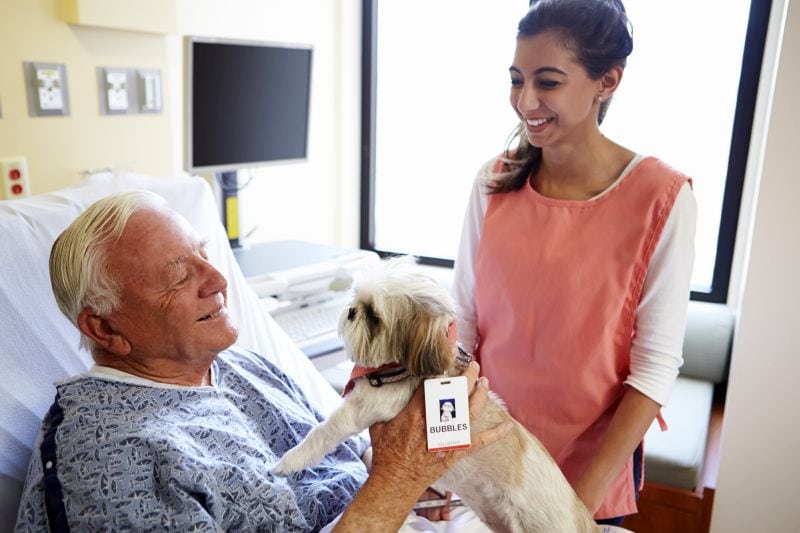
Therapy dogs are usually trained to provide gentle love and affection to people in hospitals, schools, retirement communities and other places where people often experience stress or anxiety. They are also commonly used following traumatic events to help survivors feel a bit better.
While service dogs and emotional support dogs are generally used to provide their owner with support or assistance, therapy dogs are generally used to help other people feel better.
Because they aren’t expected to do anything extraordinary, therapy animals don’t need the kind of ultra-specialized training service dogs do. They must simply be well-behaved, gentle and comfortable with receiving love and attention from a variety of different people.
Therapy dogs are not covered by the ADA, they aren’t legally entitled to accompany you on an airplane, and landlords are not required to make special accommodations for them.
Generally speaking, therapy dogs are treated like pets. However, some businesses will welcome them anyway – it just varies from place to place.
Therapy dogs needn’t be certified, but paperwork documenting a therapy dog’s training will likely improve the odds that businesses, schools, and other locations will invite your dog inside.
Emotional Support Dogs
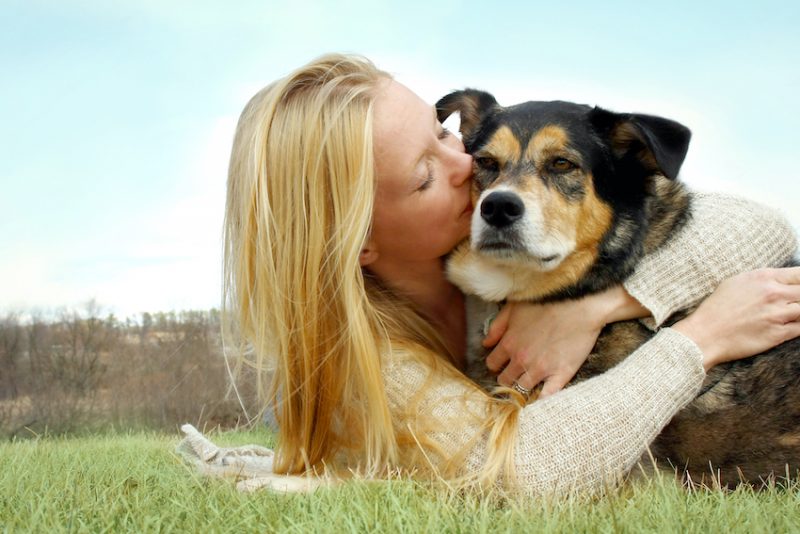
Emotional support dogs provided disabled owners with comfort or support. They needn’t be trained to perform specific tasks; they simply help their owner to feel better by being a dog (or cat, or ferret, or hippopotamus – technically, any animal can be an emotional support animal).
That being said, there are certain skills that we certainly recommend you train your emotional support dog to perform. Especially because, with enough training, your dog might even be able to qualify as a full-on service animal down the line.
Emotional support dogs enjoy more legal protections than therapy dogs do, yet they do not enjoy as many legal protections as service dogs do.
For example, airlines must allow your service dog to accompany you on a flight (update: this is no longer the case for most airlines), and your landlord will have to make special accommodations too. However, you can’t take an emotional support dog with you into most other private businesses, unless the owner voluntarily allows you to do so.
ESAs needn’t be registered, although there are organizations that will register your emotional support animal if you’d like to have some paperwork on hand to demonstrate your pup’s importance.
However, to force your landlord to allow your dog to live with you, you’ll need a letter from your doctor, psychologist or therapist.
Note that none of these dogs are required to wear a vest or badge identifying them as a working animal. But, it’s not a bad idea to outfit your pooch with a service dog vest, as long as he doesn’t mind wearing such a uniform. This may help diffuse social tensions that occasionally arise when people bring dogs to public places.
A Word of Caution (and Karma)
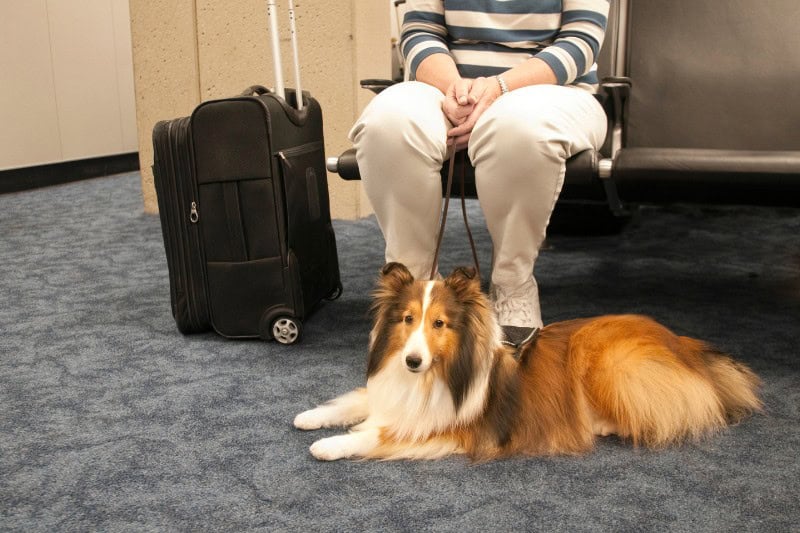
Over the last few years, a number of stories have appeared in the press involving people trying to take advantage of the laws protecting emotional support dogs (and other animals).
Often, these people do not have a legitimate need for a support animal. They are just trying to work the system, so they can take their dog with them on a flight without jumping through the hoops typical pet owners must.
Don’t be that guy or gal.

Accommodating animals on a flight is not exactly easy for an airline, and it often generates plenty of stress for the other passengers on the flight.
And while most people are certainly understanding of those who legitimately need the help of a support animal, few will take kindly to those who try to skirt around the rules for no good reason.
Trying to push these boundaries will only make it more difficult for those with disabilities to travel with their support dog. Just don’t do it.
If you want to take your dog with you on your flight and have a legitimate need for the emotional support your pet provides, you’ll want to obtain a note from your therapist or doctor.
Then, you’ll want to contact the carrier and verify that your dog meets the size requirements some carriers impose (some airlines also have species restrictions, but we’re talking about dogs here).
Where Can I Get a Service, Emotional Support or Therapy Dog?
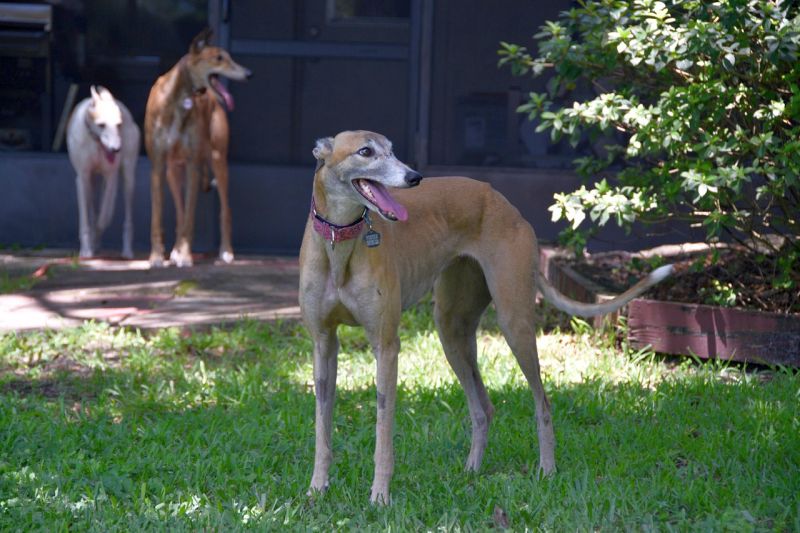
If you just want a pet to love you and lower your blood pressure when you’re tense, just head down to the local shelter or start perusing breeder advertisements.
Stick with one of the breeds above (or some combination thereof, if you go the shelter route), and you’ll likely find that your new pet helps you relax.
On the other hand, if you want a service dog, you’ll probably want to contact a local organization that provides training programs or sells dogs who have already been trained. Because you’ll want to speak with a group in your area, you’ll want to just start Googling and see what you can come up with.
However, you can also start with the AKC, as they offer a certification program and other resources.
Don’t Forget to Factor in the Challenges of Pet Ownership
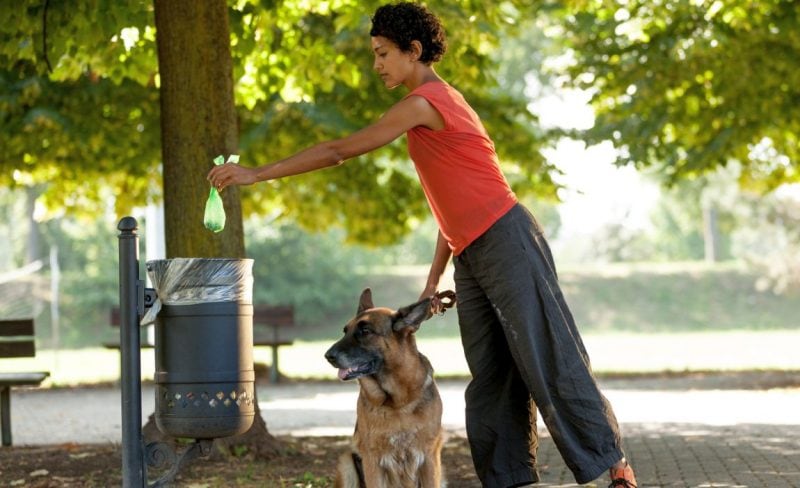
As wonderful as they are, dogs also present challenges to their owners. Most people well suited for dog ownership learn to cope with these challenges easily enough, but for others, dogs may bring more stress than they resolve.
For example, you will need to feed your dog on a regular schedule and give him plenty of bathroom breaks throughout the day. This may lead to additional stress for those who work long hours or have other responsibilities keeping them away from the house for long periods of time.
And if you have a large or active breed, you’ll have to be willing to take long, frequent walks with your pooch.
You will also have to shoulder the considerable financial burdens associated with dog ownership. In addition to the weekly expenses of food, treats, and incidentals, you’ll have to be ready to cover any necessary veterinary bills.
Even the healthiest of dogs require periodic immunizations, checkups, and regular teeth cleanings.
The Best Dogs for Anxiety: FAQ
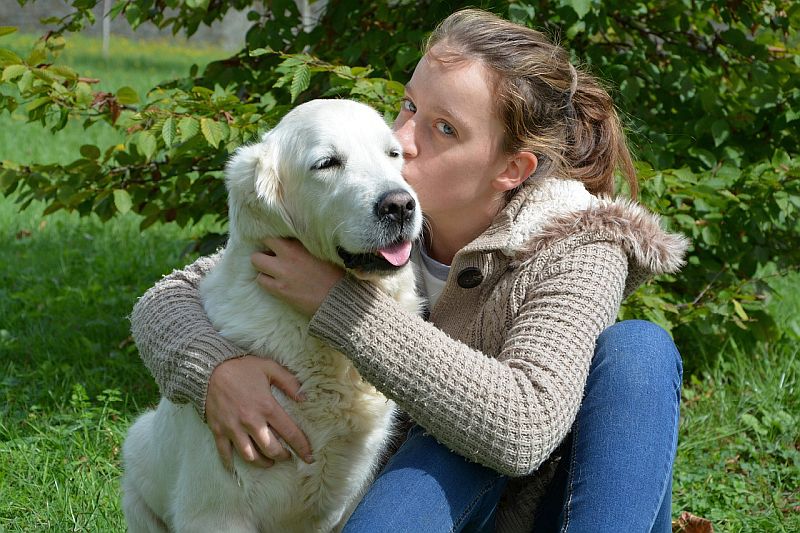
We’ve explained just about everything you need to know about dogs that help treat anxiety, but we’ll revisit a few of the most common questions people have, in case you missed the answers above.
What is the best dog for someone with anxiety?
Ultimately, you’ll need to consider your own personality, the nature of your anxiety, the kind of care you’re capable of providing, and the type of support you want from your dog when making your choice. Some breeds (including those detailed above) are typically good choices, but it will always end up being an individual decision.
Do dogs really help with anxiety?
In some cases, yes — dogs can significantly reduce their person’s anxiety. However, this is certainly not guaranteed; in some cases, dogs can exacerbate their owner’s anxiety level. The key to success is finding a breed — and a specific dog — who works well with your life and satisfies your individual needs.
Do emotional support dogs need to wear a vest?
No — emotional support animals do not need to wear a vest or other garment identifying them as such. That said, it is often helpful to hook up your emotional support dog with a vest to help inform others that he is more than just a pet.
Can an emotional support animal go anywhere with you?
No. While emotional support animals are granted access to more places than typical companion dogs are, they are not allowed unfettered access to public places in the way service dogs are.
Are small dogs good for anxiety?
Small dogs can absolutely be helpful for some owners with anxiety — it all depends on the things you’re looking for from your canine companion. Many people find small dogs fit the bill perfectly, while others prefer the traits of larger pooches.
Do German shepherds make good therapy dogs?
German shepherds can make good emotional support or therapy dogs in the right situations. However, they’re relatively high-maintenance dogs, and many GSDs are anxious dogs themselves. As always, you must select a pup that matches your personality, needs, and living situation.
Remember that each dog is an individual, and even the twitchiest Chihuahua may help alleviate your anxiety and help support your mental health – you have to match your personality to that of your pet.
Have you been able to lower your anxiety by acquiring a dog? Which breed did you choose? Did you opt for a Labrador retriever? Maybe a golden retriever? Or maybe you wanted something smaller, like a Pomeranian. How has that worked out for you? Let us know in the comments below.
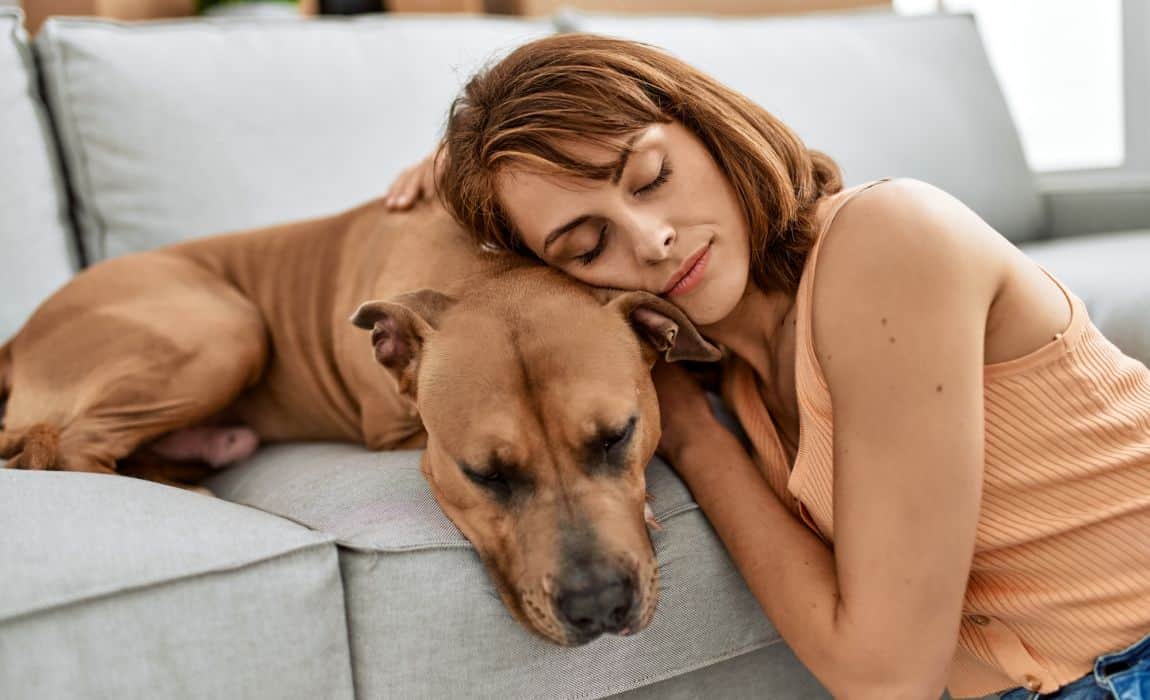



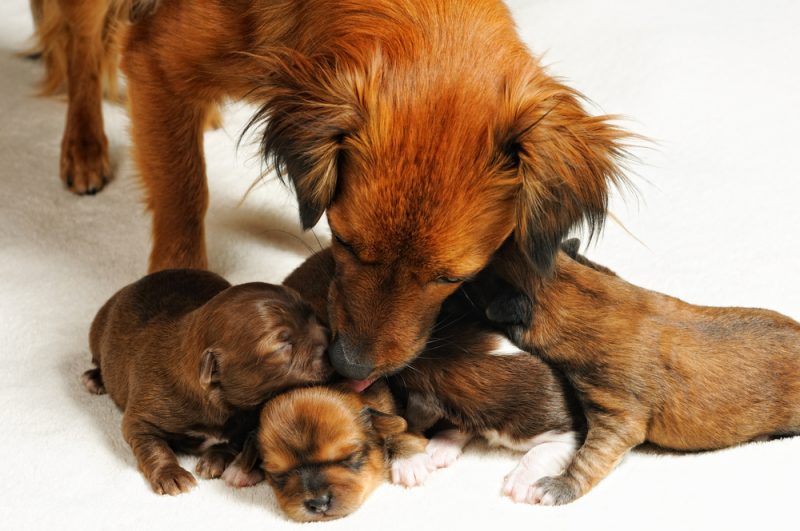
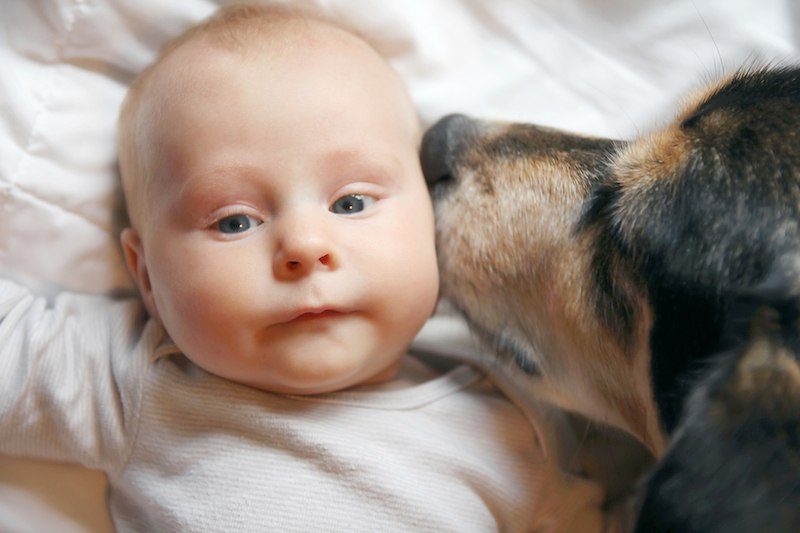
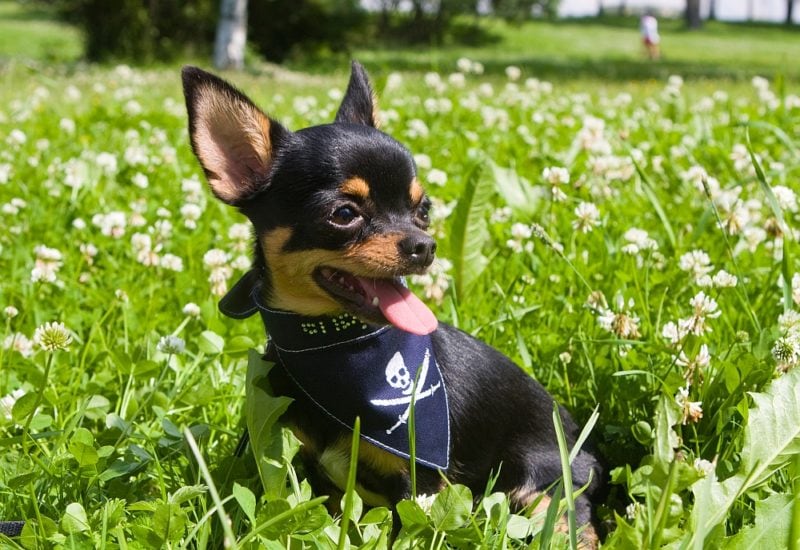

Leave a Comment